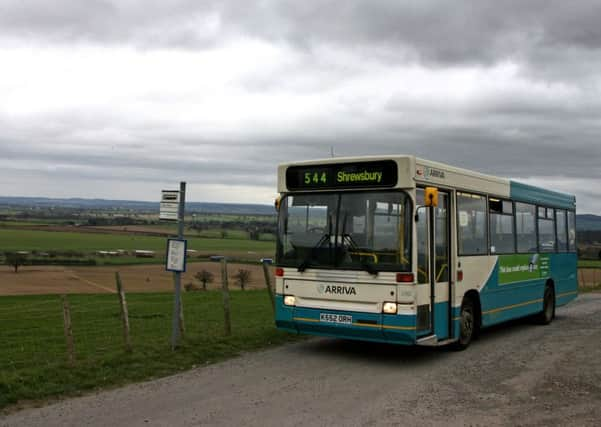Bus strategy needed to improve service - Lilian Greenwood


In 1984, the then Government asserted that: “Without the dead hand of restrictive regulation, fares could be reduced now on many bus routes and the operator would still make a profit. New and better services would be provided. More people would travel.”
Successive governments have stuck with deregulation, but the promised benefits have never materialised. Deregulation has, at best, done little more than slow the decline in bus use. The Transport Select Committee which I chair has been investigating the state of bus services across England, including in Yorkshire, and our findings have been deeply concerning. More than 3,000 bus routes in England have been reduced, altered or withdrawn since 2010/11.
Advertisement
Hide AdAdvertisement
Hide AdThe numbers using bus services are falling. This has direct consequences on people’s lives, impacting on journeys to work, education and social events. It narrows our transport options and pushes us towards less environmentally-friendly choices. And yet, our inquiry found no real evidence that the Government was determined to take action to stop this.
Without buses, people face the unpalatable choice of using cars and taxis or giving up work or educational opportunities entirely. This also narrows their choice around such opportunities. We heard that buses are not reliable, making it difficult for people to get to work or medical appointments on time. We also heard that routes are often too far from people’s work, home, school, college or other places they need to visit.
If this trend continues, not only will it make it difficult for those who use the bus the most – and particularly those who, for economic, social or health reasons, have no alternative – it will have both economic and environmental impacts. It would reduce economic growth and make congestion and air quality worse as people move from buses to cars and taxis.
Transport groups told us that passengers want simple and accurate information on ticketing and fares and reliable services that turn up on time and get you where you need to go.
Advertisement
Hide AdAdvertisement
Hide AdCongestion is not the only reason that buses can be unreliable, but it has a major impact on reliability. Unlike other factors, like bus or driver availability, bus operators can do little to address it. Tackling congestion, by using bus priority measures or encouraging people out of cars and on to buses will not only improve reliability but will also improve air quality.
Better bus reliability could encourage other people to leave their car at home and take the bus instead, further reducing congestion.
Successive governments have tried to improve services for passengers by legislating for different bus operating models, where local authorities and bus operators work together: quality contracts, advanced quality partnerships, enhanced partnerships and franchising.
Most bus partnerships are voluntary, with no legal framework, and some of the models provided for in legislation have never been used. Some areas can adopt any of the statutory models they like, while others must seek the permission of the Secretary of State. Our committee believes local authorities are best placed to know which model is right for their area, and has recommended that the Government bring forward legislative proposals to make all models available to all areas on the same basis.
Advertisement
Hide AdAdvertisement
Hide AdFunding for buses mainly comes through bus passenger fares but the Government, through a variety of mechanisms, provides over 40 per cent of the money. A lack of long-term funding means that money from the Government is often seen by local authorities and bus operators as uncoordinated and fragmented. Long-term certainty over Government funding would mean that bus operators and local authorities could plan bus networks more effectively than they do now. The Government has long-term funding plans for roads and for rail investment; it seems strange not to have a similar plan for the most used form of public transport.
We recognise that it is unlikely there will be more funding available from the Government for bus services. As well as a long-term funding settlement, the Government needs to ensure current funding is used to best effect and helps to increase bus use.
The Government has strategies on rail investment and road development; it is now time to bring forward a strategy for bus services outside London. Core to the strategy should be the desire to make bus services more passenger-focused and provide value for money, helping to bring more people, especially young people, onboard.
This will also bring benefits for air quality, cutting carbon emissions and reducing congestion.
Lilian Greenwood is chair of the Transport Select Committee and a Labour MP for Nottingham South.